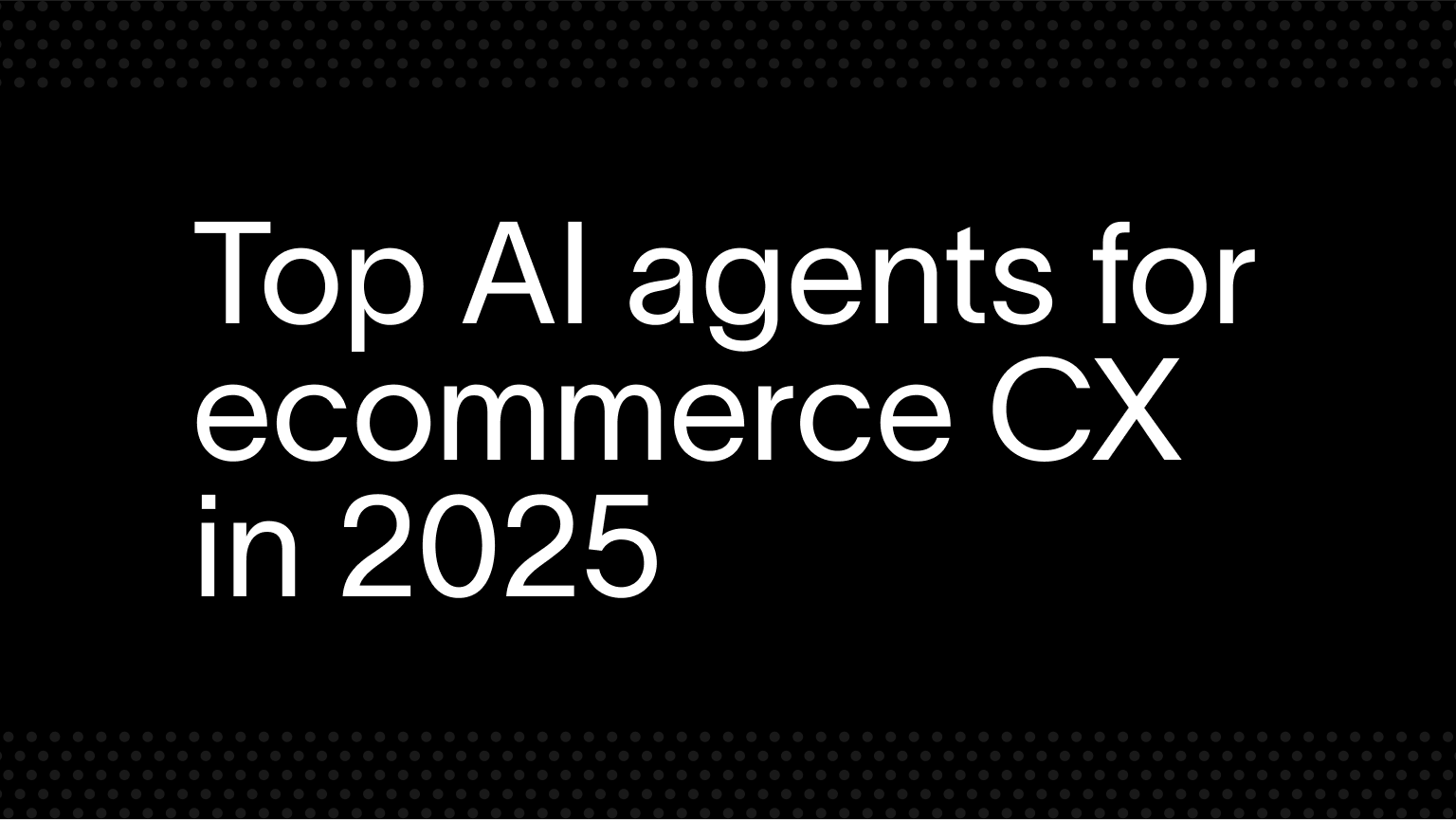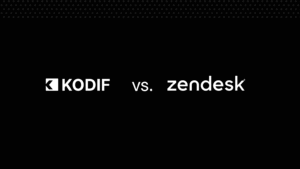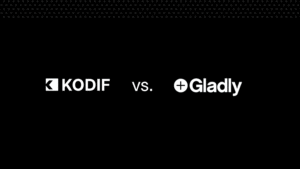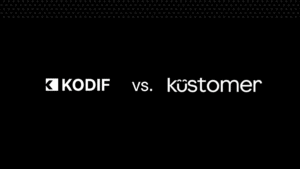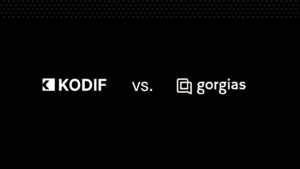The AI boom has hit CX hard, and for ecommerce, the stakes couldn’t be higher. Customers expect instant, personalized, and accurate answers, and companies are racing to deliver.
The catch is, though, that many AI implementation projects fail because:
- Too many tools focus on hype instead of solving real-world CX problems,
- The choices out there are endless, and many companies don’t think enough about the specific needs of their business and customers.
That’s why we put this list together: to show you what the major AI agents in CX and ecommerce actually do, where they shine, and where they fall short.
Whether you’re exploring no-code ecommerce automation or enterprise-grade AI assistants, this roundup will help you figure out which AI teammate belongs on your side.
1. KODIF
Best for: Ecommerce brands that want end-to-end automation across the full customer journey.
KODIF is built for ecommerce from the ground up, not retrofitted from generic AI platforms.
Instead of focusing only on post-purchase deflection, KODIF covers the entire journey: pre-sale questions, purchase decisions, order updates, subscriptions, returns, and retention offers.
Strengths:
- Full customer journey coverage (pre- and post-purchase)
- No-code workflow builder for CX teams (no engineering required)
- Deep ecommerce integrations (Shopify, Recharge, Ordergroove, Loop, Rebuy, ShipMonk, and 100+ more)
- Proprietary agentic AI model → AI as a teammate that continuously improves
- Built-in experimentation and analytics (test retention offers, measure impact, iterate fast)
Why it matters:
AI in CX can’t just be about cost savings. KODIF focuses on measurable business outcomes: increased CSAT, higher retention, cart recovery, and reduced ticket volume.
And, unlike heavier platforms, CX managers themselves can launch and maintain workflows without waiting on engineering.
2. Decagon
Best for: large, tech-first enterprises that measure success primarily in containment rates and already have the infrastructure to build revenue-driving automation around your AI agent.
Strengths:
- Strong funding momentum, proven with large-scale deployments, great with complex processes.
Limitations:
- Less depth in ecommerce-specific use cases, insights siloed in the interface, less emphasis on revenue-driving use cases, and very broad vertical spread.
Full comparison: KODIF vs Decagon
3. Forethought
Best for: Mid-to-large multi-industry companies (SaaS, fintech, healthcare, ecommerce) that want AI to improve triage, ticket routing, and self-service within their existing helpdesk ecosystem.
Strengths:
- Strong NLP and intent detection, good agent-assist features, proven in post-purchase workflows, and broad applicability across verticals.
Limitations:
- Limited ecommerce depth, focuses on post-purchase deflection rather than full resolution, slower implementation with a pro-services layer, and less emphasis on revenue-driving outcomes.
Full comparison: KODIF vs Forethought
4. Siena
Best for: smaller DTC or Shopify-first brands that need a quick, lightweight AI agent to deflect common support questions. Their focus is mostly on post-purchase support and creating chatbots that feel less robotic.
Strengths:
- Emphasis on natural, empathetic tone, minimal setup, friendly for lean CX teams, good starter AI agent for early-stage ecommerce brands.
Limitations:
- Limited depth on complex workflows, focused on post-purchase FAQs/returns/cancellations, less emphasis on deeply solving issues, revenue-driving automation, or integrations beyond Shopify ecosystem.
Full comparison: KODIF vs Siena
5. Digital Genius
Best for: Ecommerce brands looking for a fully managed service, but okay with less flexibility.
Strengths:
- Ecommerce-specific workflows, managed service model (done for you), focus on resolution, not just deflection
Limitations:
- Heavy setup and onboarding, UK-based support teams (limited hours for global brands), less flexibility for CX teams to make changes independently
Full comparison: KODIF vs Digital Genius
6. Sierra
Best for: Fortune 500 enterprises in a regulated industry with deep budgets, long timelines, and appetite for pro-services-heavy transformation projects.
Strengths:
- Enterprise logos and credibility, regulated industry readiness, large funding and ex-Salesforce/Google pedigree.
Limitations:
- Long time to value, heavy services dependency, less focus on revenue-driving use cases.
Full comparison: KODIF vs Sierra
Who we are
At KODIF, we believe AI shouldn’t just deflect tickets, it should act as a teammate to your CX org. That means:
- Covering the entire ecommerce journey, not just post-purchase.
- Giving CX teams the ability to own and maintain workflows without engineering.
- Building in continuous improvement: knowledge suggestions, topic creation, and experimentation.
We’re here to make sure ecommerce brands don’t just survive with AI, they grow.
Most interested in KODIF?
Here are some more details on KODIF and what we can do.
| Area | Details | Why it matters |
| Core positioning | No-code automation layer across CRMs and tool stack | Avoids re-platforming, faster value |
| Returns/refunds | Deep integrations (Shopify, Recharge/Loop, etc.), label/refund actions | Automates top D2C drivers |
| Builder experience | Natural language, transparent reasoning | Client ops can own iteration and AI is not black box |
| Agent Assist | CRM co-pilot and “side-pane” drafts, fallback via tags/views | Higher agent efficacy |
| Knowledge/policy | Skills library, versions, audit trails | Governance for 1 → 100 |
| APIs/Webhooks | Webhook node + attribute routing | Allows for proactive flows and integrations |
| Reporting | Light native, export events to data warehouse | BYO analytics with full observability |
| Compliance | SOC2, GDPR, CCPA, ISO 27001, HIPAA | Meets procurement needs and minimizes legal drag in acquisition |
Want to learn even more and see it all in action? Book a demo!

